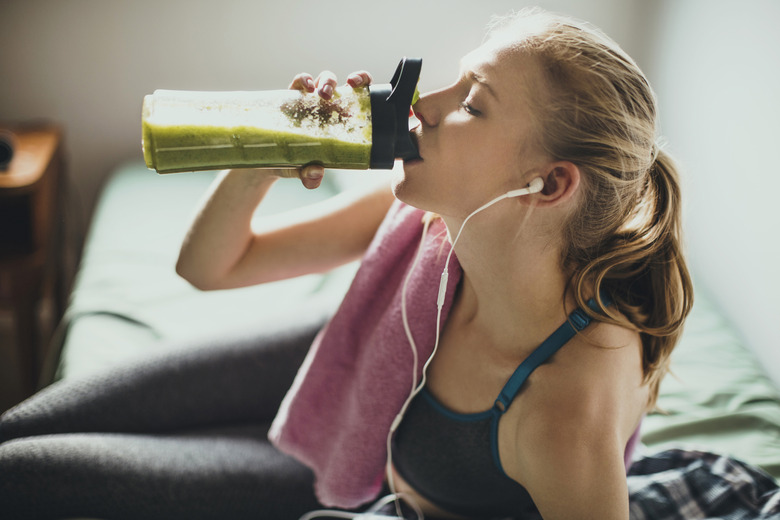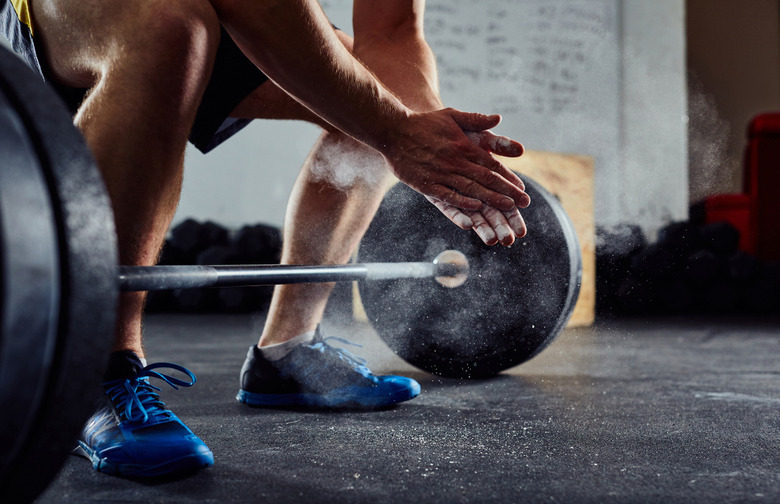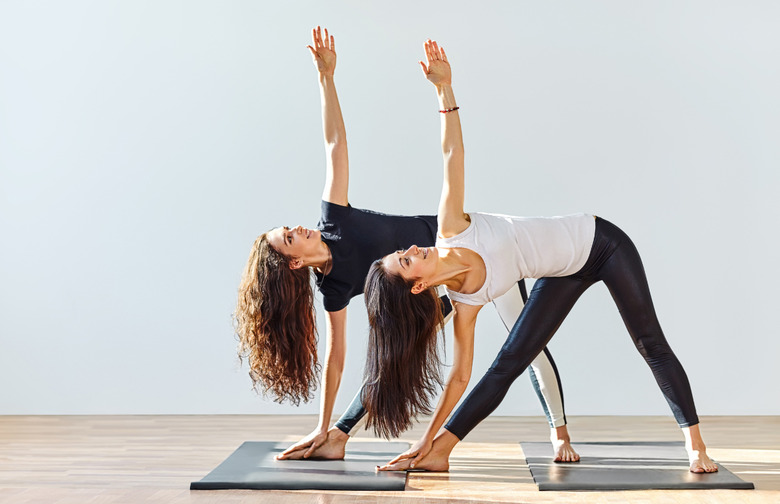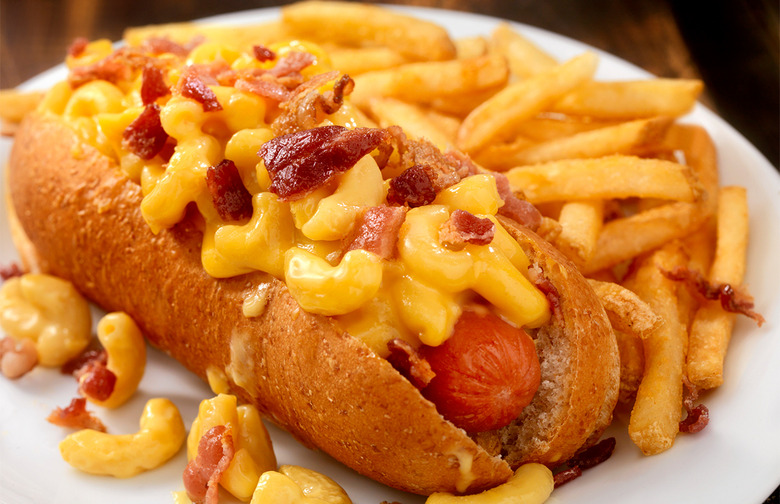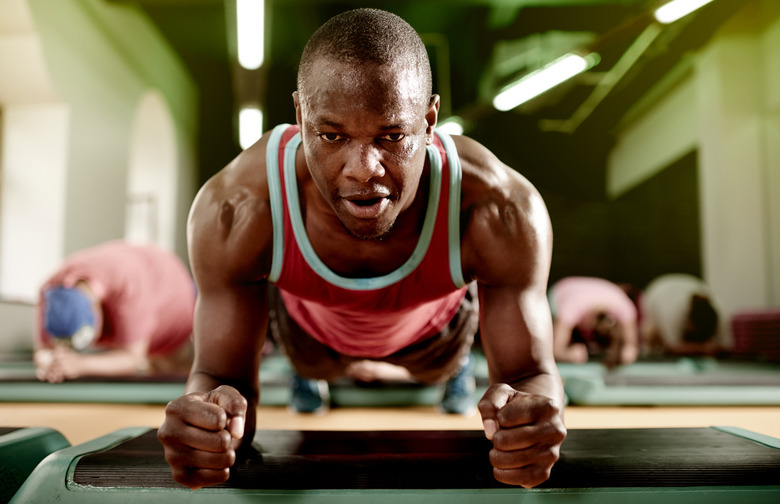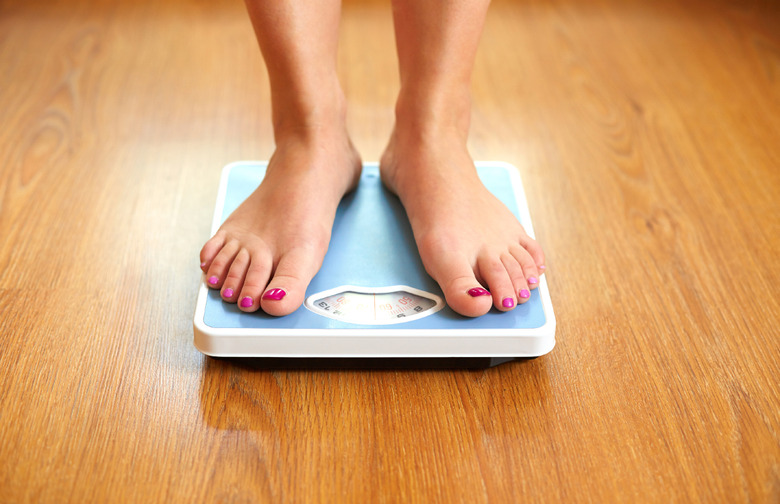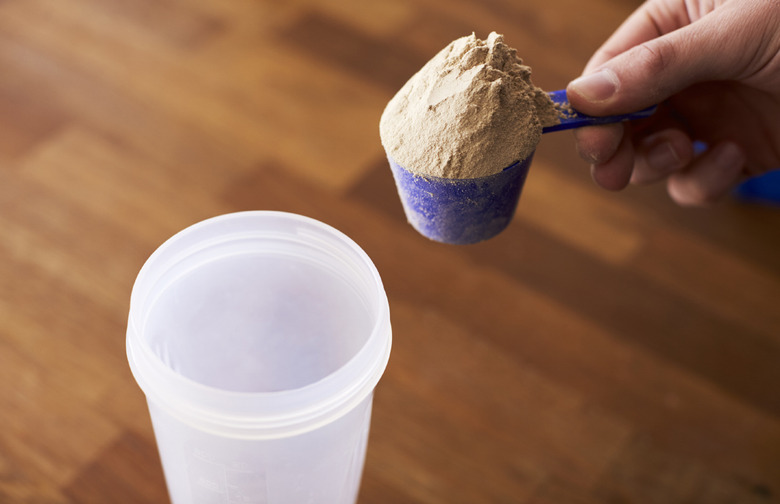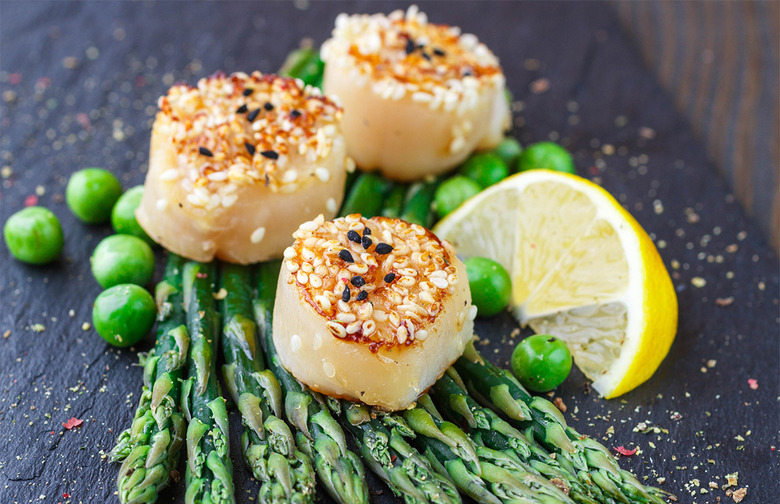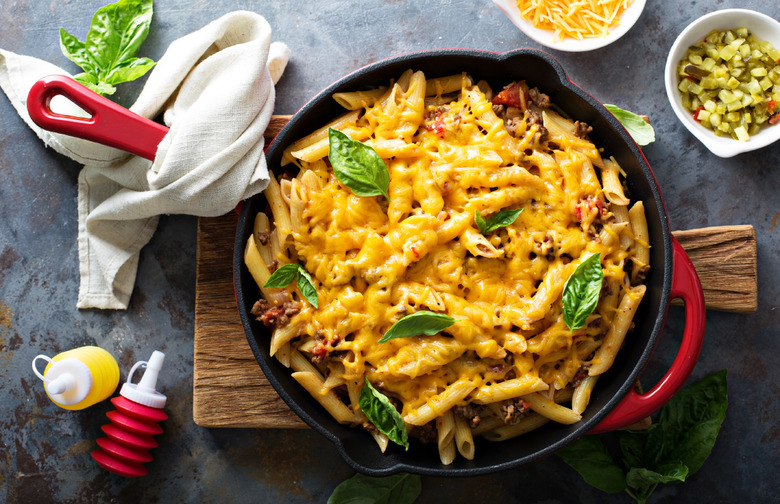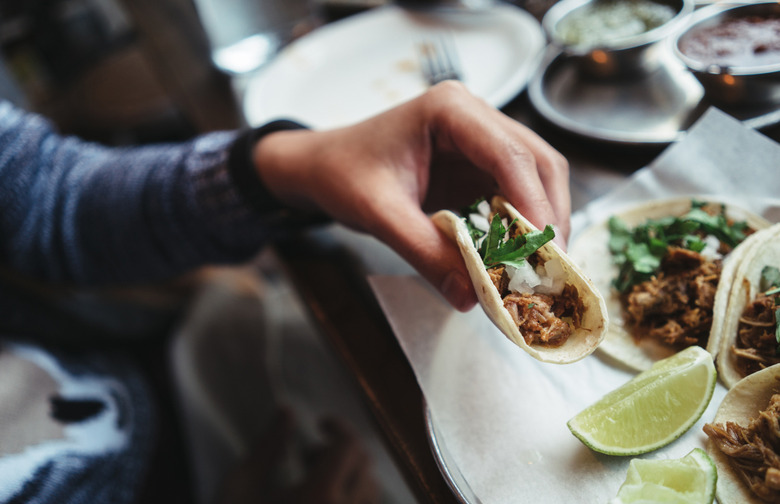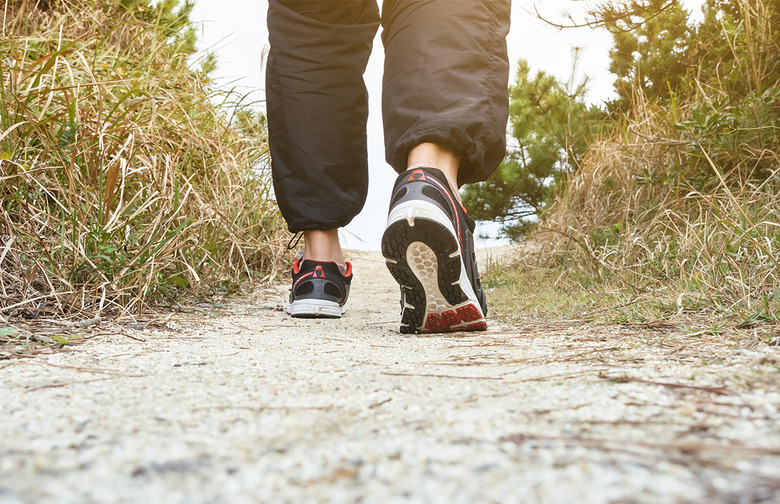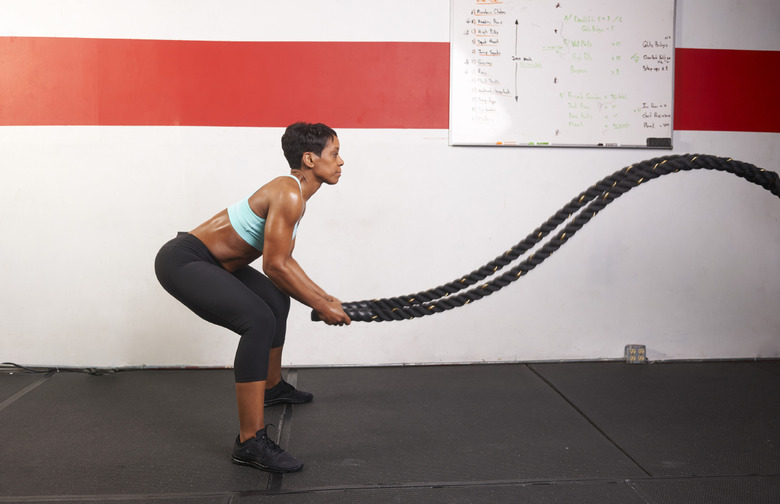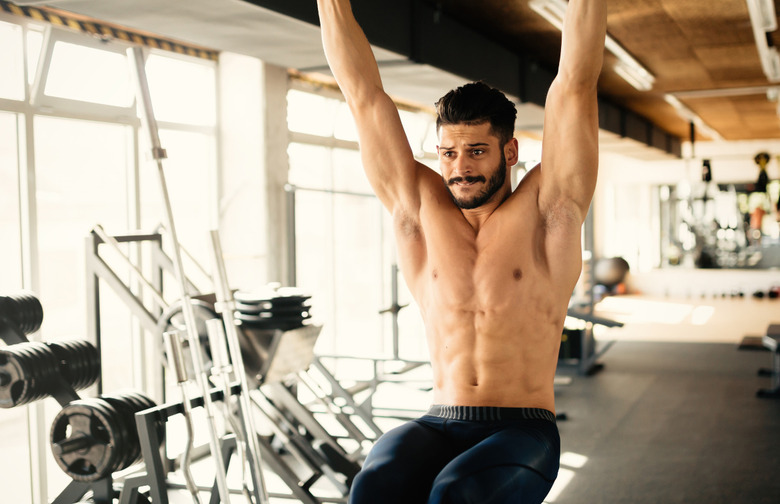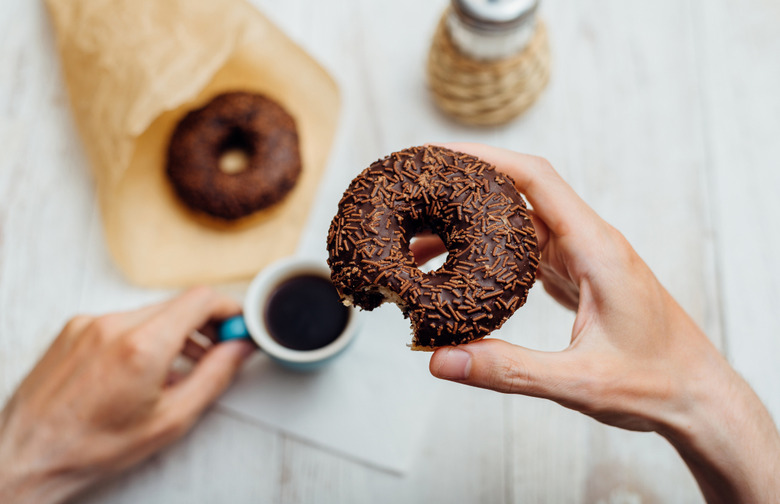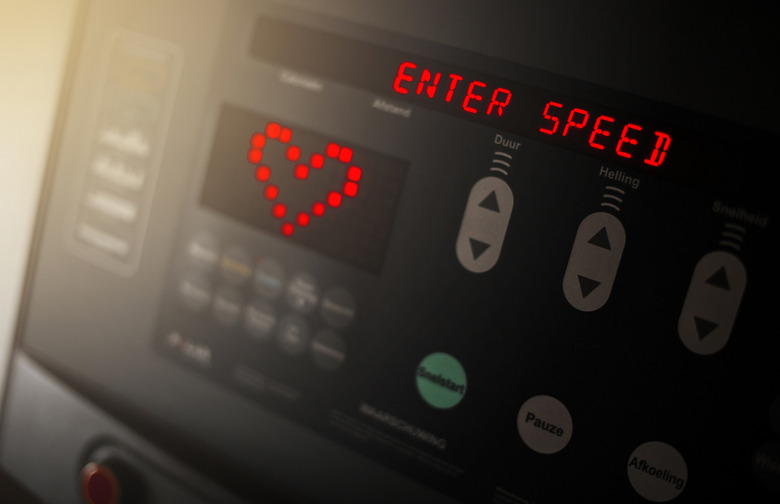Stop Believing These 25 Food And Exercise Myths Slideshow
People used to believe crunches were the epitome of a good workout. Can you believe that? We can't either, but if you asked someone in the '90s, they'd be on board. They might even have had a 30-day flat-belly plan filled with dozens and dozens of crunches tacked to their fridge.
Honestly, people are always making assumptions and hearing inaccurate information about food and fitness. Fitness advice is always changing and people are always learning, but we're definitely not at the end of misconceptions about weight loss.
Some of these common beliefs have already been debunked. I've been a fitness instructor for over two years and have heard a lot of crazy advice. I've taken a six-month course to become group-fitness certified, worked closely with nutritionists and fitness professionals, and read tons of information about health and wellness. Based on what I know from these experiences and as the healthy eating editor here at The Daily Meal, here are the 25 myths I think we all need to stop believing ASAP.
A Bad Workout Is Better Than No Workout
Everyone has those days: Maybe you're really sore, didn't get enough sleep, or don't feel like you can muster up the willpower to inspire a great workout. If you listen to the advice of many fitness "motivators," you might think that the best idea is to head to the gym anyway. Anything is better than nothing — right?
Wrong.
If you're dreading the gym, tune in to your dread. Seriously. There's probably a reason you feel like you really can't make it. Powering through exercise when you're sleepy, sore, or just plain old tired of going isn't helping you and it isn't helping your body. Give your body — and your brain — the time to recover. Taking some time to step back from the end of your rope is probably the best thing for you — and your fitness routine — in the long run.
Cardio Is the Best for Weight Loss
Exercise does not automatically result in weight loss. Period. Your body regulates its weight using thousands of metabolic cues — of which exercise is just one — releasing and withholding hormones as it sees fit. It wants to keep you at your set point — the weight at which it's most biologically comfortable. That set point could be heavy, light, or somewhere in between. Not every healthy person is meant to be thin.
But regardless, engaging in excessive amounts of cardio could lead to the opposite effect from what you're looking for. If you're expending more energy than you're taking in — or just putting a ton of stress on your legs, joints, or brain through prolonged cardio workouts — your metabolism slows, holding on to the resources it has from food.
Additionally, your body resorts to burning muscle for energy, rather than relying solely on fat. Having muscle boosts your metabolism — so this is, essentially, a completely counterproductive effort once you've overdone it with cardio.
No Pain, No Gain
The whole "if you're not in pain, work harder" mentality is a self-abusive take on what should be an uplifting experience. There's no need for pain during your workout. Powering through painful experiences just adds wear and tear or could even result in an injury.
There's no need for pain after your workout, either. Sometimes, you're sore when you build muscle. Other times, you're not sore — but you still might build muscle. Confusing, we know.
Overweight or Obese People Aren’t as Fit
You might see someone walk into a fitness class who's overweight and think you know you're fitter than they are. But that person could be stronger, have more endurance, and spend more time at the gym than you ever did.
Fitness looks different on everyone. Remember that set point we were telling you about earlier? Everyone's is different — meaning that you really can't tell how much or how little exercise someone does just by looking at them. Some people who enjoy frequent, intense exercise have a set point that's much higher and may be considered overweight. So they look overweight — yet, they exercise a lot. This woman, for example, runs 50k's like it's no problem despite her high body mass.
The More Exercise, the Better
It's easy to fall into the trap of doing more, more, more... Especially with exercise. The time you spend at the gym, on the track, or slaving away on the elliptical just keeps getting longer and longer. Until you either quit or you crack.
We're consistently taught that exercise is good, while not exercising is bad. But that isn't always true. It's possible to overdo it — there's even a name for it: overtraining. Putting your body through the ringer with too much exercise can do more damage than good. After an hour at the gym, the benefits start to taper.
But everybody is different — it could take less than an hour for you to overdo it. If you're feeling fatigued, pushing through more exercise isn't going to help you gain strength, stamina, or anything else. In fact, exercising while fatigued increases your stress levels and sabotages your progress.
Working Out in the Morning Is Better
There are advantages to morning workouts, and there are advantages to afternoon and evening workouts. No one really knows which is best. The best time to work out is the time that works best for you. So if you're not a morning person, don't bother setting your alarm. Your body doesn't care when you move it, so long as you move at some point.
The Daily Meal's healthy eating editor recently worked out in the morning every day for a month — and eventually determined it just wasn't the right fit.
Yoga Is for Rest Days
Unless you're doing workout recovery-oriented yoga — the kind that's 99 percent stationary since you spend eternity and a day holding each gentle stretch — it's not a real rest. Just because you're not jumping around doesn't mean you're not working hard. Yoga uses almost all the muscles in your body; after a particularly strenuous class, you might even need another day to recover.
You Can’t Out-Exercise a Bad Diet
You've probably heard this one a million times. This piece of advice is doing a whole lot more harm than good. After all, why does exercise have to compensate for diet? Associating food with burning it off is a really bad idea for your mental health.
It's also assuming that your body size is dependent on your diet and exercise, implying that you can't get "results" with exercise alone. However, you won't really get the exact results you want from your body regardless. (Sorry.)
Both your diet and your exercise play a role in the way your body looks in the short term, sure. But in the long term, your metabolism and your body's other regulatory mechanisms are going to catch up. So no matter your diet or your exercise, you can't control the way your body looks in the long run. What you can control, though, is how happy you are throughout the process.
Attaching words like "bad" to certain foods just makes you want them more. And depriving yourself of foods you want is not going to make you happy or help you lose weight. Don't diet or work out for weight loss — eat and move to make yourself feel good.
Certain Workouts Make You Lean, Others Make You Bulky
Attention all ladies: Lifting weights will not make you bulky! And lots of running will not guarantee you'll be lean. Bodies don't all react the same way to the same movements. You put on and burn fat for more reasons than just your workouts.
Sure, having more muscle on you will probably show — but you won't get an exact body type from a specific exercise regimen.
Just take a look at the millions of people who do the famous BBG workout guide. They all do the same exercises for weeks, but they all have different bodies. You can't guarantee a certain body type based on your workout — so pick a workout you like! This pizza run, for example, looks like our ideal way to exercise.
Tons of Sweat Means It Was a Great Workout
Sweat is your body's temperature regulation — that's it. When you work hard, you do tend to heat up because of all the processes going on in your body that are releasing heat. But if you're in a really cold environment, you might not sweat much. The workout was still effective, though.
Additionally, if you're in a really hot room and you sweat way more, it doesn't mean your workout was any better. It just means you probably need to shower ASAP.
You Only Need One Rest Day a Week
You might be good with one — or you might need more. It all depends on how sore you are, how much sleep you're getting, and how intense your workout was the day before. Some signs that you need a rest day include soreness, fatigue, chronic moodiness, or feeling dehydrated even after you've drunk a ton of water.
You Should Burn More Calories Than You Consume
The calorie equation is a myth. Your metabolism and hunger cues shift when you eat and move more or less. Remaining in a calorie deficit for a long period of time will result in a slower metabolism, feelings of fatigue, and eventual weight gain once you inevitably start eating more again.
We advise you don't count calories at all — just eat when you're hungry and relax about it. Nutritionists everywhere agree that a mindful, intuitive relationship with food and exercise will bring you the best health outcomes in the long-term.
If You’re Not Losing Weight, You’re Doing Something Wrong
We all tend to assume that a healthy body looks like a smaller body — but that's just not true. Weight isn't indicative of being unhealthy; if you're overweight but feeling great, you could be doing everything right. And if you're losing weight but feeling awful, you're probably doing something wrong.
Judge your habits based on how you feel. If you're feeling stiff and lethargic, that might be an indicator you need to be moving more. Alternatively, hunger and constant soreness might mean you should be moving less. The way you look or the number on the scale has nothing to do with it.
Never Eat Past 8 P.M.
It doesn't matter what time you eat — it takes you a while to digest and use all the nutrients, anyway. Your body isn't looking at the clock. What matters is how responsive you are to your hunger. Going to sleep on an empty stomach could cause poor sleep quality, a slowing metabolism, and ravenous hunger in the morning.
You Need a Protein Shake Before You Work Out
The protein is actually more useful after your workout. Protein is used for muscle repair; to build the muscles back up after your weights session at the gym, you're going to want some protein.
That being said, there's no rule that says you have to get your protein from a shake with an aftertaste that's whey (ha, get it?) too strong to ignore. Any source of protein — meat, eggs, beans, yogurt, almonds — will do.
Don’t Wreck Your Workout With Food Later On
We're told over and over again that we're not allowed to "wreck" our workouts with higher-calorie foods. But when you think about it, that concept makes little to no sense. Food doesn't negate exercise. Your heart rate doesn't reverse, your limbs don't go stiff, and your hormones don't retract back into your organs after they're released just because you ate. None of that happens.
What does happen, however, is that you replenish the nutrient stores you used up during exercise. The body doesn't like running on empty, so it prefers you keep these stores of energy stocked. When you don't eat after your workout, you experience a dreadful dip in metabolism that will likely leave you feeling drained and sleepy.
Plus, you know what a slower metabolism means — fewer calories burned. Eat after your workout, and eat adequately.
Low-Calorie Foods Are the Best Post-Workout Option
Eating after your workout doesn't wreck the time you spent at the gym. In fact, muscle repair relies on the fuel you give your body afterwards. Your metabolism is revved and ready to consume those calories after you've worked up a sweat.
If you eat something skimpy, your revved metabolism is going to slow. Like, way down. If you eat until you are satisfied, with foods that are filled with nutrition and sustenance, your metabolism is likely to keep barreling on for hours after your workout.
You Should Avoid Carbs After Your Workout
Exercise, especially cardio, uses energy like crazy. Your body's go-to energy source is carbohydrates. Once your workout is over, you're going to want to replenish those carbs, and replenish them fast. Without the carbs it craves, your body has a really hard time starting up the recovery process. It uses glycogen and glucose — both from carbs — to build and repair your damaged, sore muscles.
You Should Eat Less on Rest Days
Your body burns calories based on more than just whether or not you exercised. In fact, muscle repair and recovery days require a lot of energy — you're building muscle, refueling, and getting stronger on your rest day! All those processes use protein, fats, carbs, and calories. You might even feel hungrier on your rest day than you were the day you worked out — who knows?
Ab Workouts Burn Belly Fat
And arm workouts won't burn arm fat. You can't spot-treat body fat. When your body uses muscles in your abs, it has your whole body at its disposal for sourcing energy — not just your stomach. Fat loss and fat gain are usually pretty evenly distributed.
Ab workouts do build strength in your abdomen, though. Muscle building is something you can localize.
Walking Isn’t a Workout
Says who?! If you've never walked a long distance and you go for it one day, that's effort that your legs aren't used to. You're going to break down your leg muscles, use lots of energy, and get stronger as a result.
Low-Carb Eating and High-Intensity Exercise Is the Best Plan for Weight Loss
Using more energy and giving your body less energy to go off of is supposed to force your body into using fat for fuel — right?
That's what advocates of these diets would have you believe, but that's not really the case. Your metabolism is reactive to the energy it receives. If it gets less energy, it's going to try and use less — so it'll slow down, making you feel tired, moody, and frustrated when you go through all that and the weight still doesn't stay off. It's also probable that fat burning is going to stall — your body wants to hold onto the energy it can, since you're not being very reliable in fueling it.
Consistent high-intensity exercise has a similar effect. The more tired you get, the slower your metabolism will crawl. You want to vary the intensity of your workouts to give yourself a chance to breathe and recover.
Having a Six-Pack Means You’re Fit
In order to have a six-pack that shows, you have to have very little body fat. And not everyone's meant to have such a low percentage of fat on their bodies. People will sometimes attempt to lose more body fat than is comfortable in pursuit of six-pack abs, resulting in a less healthy, less energized, and weaker body as a result. Just because you don't have a six-pack doesn't mean you don't have abs — they're just hiding.
If I Eat Something Bad, I Have to Exercise to Burn It Off
Connecting food with exercise is not only a really unreliable way to regulate your health, but is also a mentally unhealthy way to interact with your body.
Foods like dessert, snacks, and greasy sides aren't actually bad — they don't do any real harm. And punishing yourself for these foods with a workout is going to make you think of workouts in a negative way while not really doing much in terms of how you digest the food.
You Can Count Calories Burned on a Gym Machine
Those gym machines are guessing at calorie numbers without knowing anything about you. In addition to your weight, height, and other measurable factors the machine probably doesn't ask, it also isn't taking into account how much you ate that day, your level of fitness, how much you slept the night before, or thousands of other factors affecting calorie burn.
